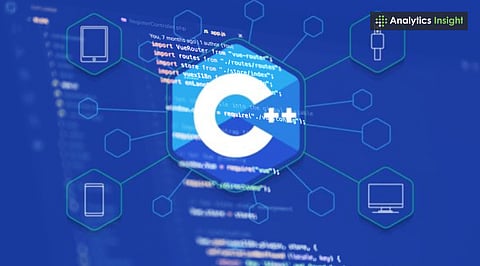

C++ powers high-demand fields like gaming, AI, finance, and robotics with unmatched speed.
New standards such as C++20 and C++23 improve memory safety and modern programming tools.
Skilled C++ developers remain in demand and earn well across critical global industries.
C++ has been a mainstay of programming languages for decades, and in 2025, it is still among the most relevant and powerful programming languages available. Newer programming languages may receive recent attention, but C++ is still the workhorse for some of the most fundamental technologies.
Learning C++ in 2025 will provide you the opportunity to develop high-performance software. The strength of C++ programming includes speed, flexibility, and broad library support.
Here are ten reasons why learning C++ remains a solid decision.
C++ is known for running extremely fast because it operates close to the hardware. This makes it the preferred choice for areas where timing is critical, such as stock trading platforms, high-performance simulations, and advanced video games.
Essential to complex coding problems are advanced C++ techniques. Unlike many of today’s modern languages that abstract away memory and the details of the machine, C++ allows developers to control memory and the machine with precision. This precision increases a developer's awareness of the workings of a machine and affords the ability to optimize behavior not available in higher-level languages.
Also Read: Top YouTube Channels to Learn C++ in 2025
Additionally, C++ has had many new features added over time to improve safety and efficiency. Most recently, C++20 and C++23 added features such as smart pointers, improved memory management, and constructs to access and manage asynchronously and in parallel. These enhancements make C++ a safer and practical programming language for modern software projects.
C++ remains the backbone of many widely used applications and systems. Operating systems, web browsers, and creative software rely heavily on it. Examples include Microsoft Windows, Google Chrome, and Adobe Photoshop. Anyone learning C++ is studying the language that supports many tools used daily across the world.
C++ is a favorite in the game development industry because it can handle demanding graphics and processing. Popular engines like Unreal Engine are powered by C++, and many top titles (Fortnite, the Final Fantasy series) use C++. If a developer wants to build a complicated, visually impressive game, they will need to use C++.
While artificial intelligence is strongly represented by Python, the parts of the frameworks that need to perform quickly are implemented in C++. For instance, while TensorFlow is implemented in Python, it leverages C++ to process large volumes of data efficiently. C++ is foundational to the growth of machine learning and robotics because it provides the speed needed in those areas.
C++ programmers remain in high demand. Industries such as aerospace, finance, and robotics rely on the language for their most sensitive systems. Because errors in these fields can be costly and performance must be flawless, companies are willing to pay competitive salaries to developers who possess expertise in C++.
C++ plays well with other programming languages. It is often paired with a different programming language (Python or Java or Rust, for example) to find the right balance between speed and simplicity. C++ can power a program's systems-intensive sections while a different programming language manages its simpler functions. In this way, we can create systems that are difficult to manage, while still being high-performance.
There are many different platforms on which a C++ program will run. Windows, macOS, Linux, gaming devices, small-embedded devices, etc. When working with C++, developers do not have to completely re-write their programs in order for them to work on different platforms. This feature aids developers by boosting productivity across platforms.
C++ continues to be updated through new standards. C++26 is set to introduce new developments such as pattern matching and better ways of writing performance-efficient tools/code. Many studios choose C++ as their programming language of choice for developing their video-games because they have a great deal of reference performance and control over system resources.
It is evident C++ is a programming language that is not 'dying'. In fact, it is innovating in order to meet new challenges and thus, remain relevant to modern technology.
Also Read: Best C++ Libraries in 2025
C++ combines speed control and adaptability in a way that few other languages can match. It powers video games, artificial intelligence systems, operating systems, and financial platforms. It remains in high demand across industries that value reliability and performance.
Modern C++ projects demand a deep understanding of both fundamentals and best practices. For learners in 2025, C++ is more than just another language. It is a gateway to industries that shape everyday technology and a skill that continues to hold long-term value. C++ has a strong history, but more importantly, it has a future that continues to expand.
